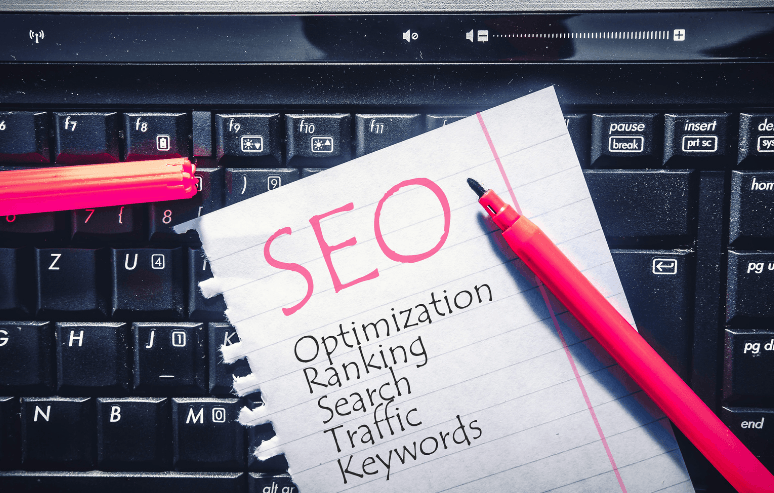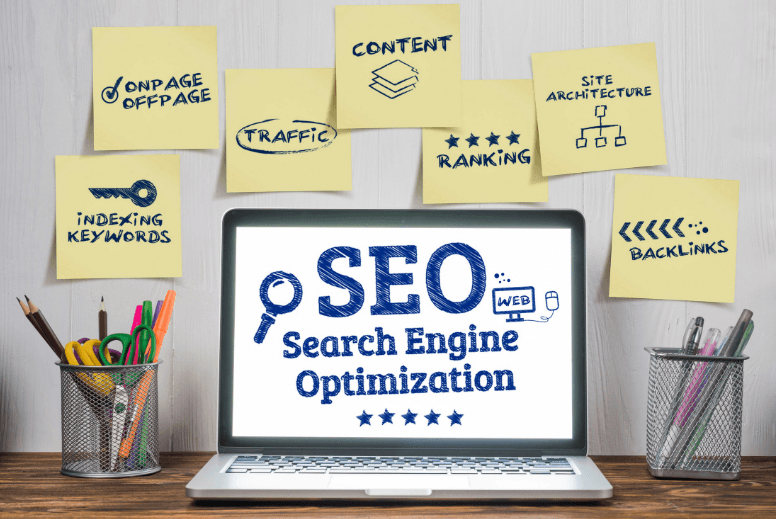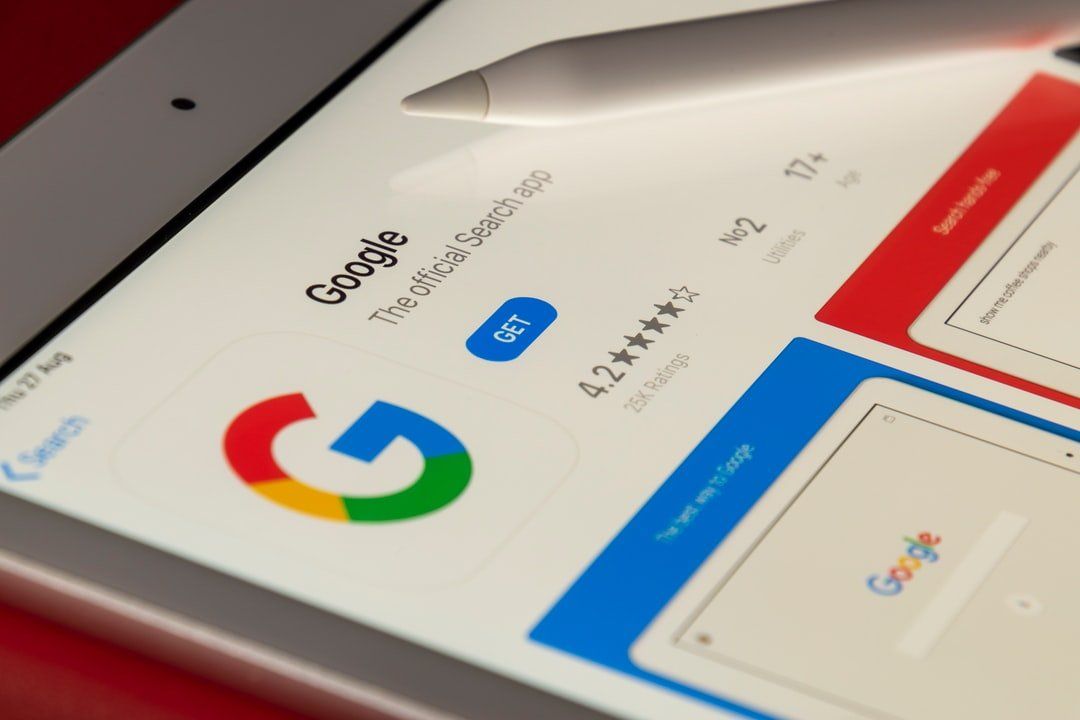JST Digital News

There are two types of search engine optimization, on-page, and off-page. On-page optimization is concerned with developing relevance by ensuring the right words are present on the page. Simply put, optimization is how the website will be found by sites looking for it. Off-page optimization is purely technical in nature. This often refers to link building and is what most people think of when they hear SEO . On-page optimization is concerned with developing relevance by ensuring the right words are present on the page. Off-Page optimization is partly the technical side of things but it also involves marketing and promoting your website, and pulling in traffic from places beyond your own planet. Understanding the importance of both is crucial for anyone who wants to market themselves effectively online. On-Page Optimization On-page optimization is concerned with developing relevancy by using the right words on the page. One way of developing relevance is by using headings, bold text, and bullet points. It will be easier for search engines to work out what your page is about if these are standards-compliant. It will also help if the page title includes the alt description and anchor text of links coming to your site. It is important to use alt and title tags, which means using a keyword phrase to name an image. Search engines will be able to read this and better understand the site. It will also be easier for them to work out what your site is about. Off-Page Optimization Off-page optimization is the technique of building links on other sites to your site. This is done by using anchor text, which is the text used in a link. Using your keyword as anchor text will help show the search engines that your page is about the keyword you are targeting. Links can be built on a regular basis and will be a constant source of new visitors and income being generated by the site. It is important to build a regular flow of new and non-reciprocal links to your site. This will be a constant flood of new visitors ready to find their perfect provider. Make a list of prospective sites to which you would like to link. You are not expected to link to all of the sites. In fact, reciprocal links have very little value and count much less when it comes to building site traffic. More quality non-reciprocal links will be far more beneficial. Building Link Popularity The theory is that each new link to your site is like a vote. However, it is not about who has the most votes. It is about which votes are of the highest value. Search engines look at link quality, again, and not necessarily all incoming links are equal. The best links will be those that are high quality and have a lot of weight. This may sound like common sense, but it is indeed true. Search engines will reward sites that are getting inbound links by the likes of article directories, government, and educational sites, as well as sites that are seen as important by other sites with similar content. In the SEO world, it is all about quality inbound links which will give you the best search engine rankings. If your site has lots of inbound links from sites that themselves have a lot of inbound links, this will make the search engines take more notice of your site. What Search Engines Are Looking For It is important to have a certain ratio of text to links on your web page. The topic of your site should be presented clearly and concisely. You should have an article or blog for each topic. Search engines regularly index new sites. Expect to see your site's index rapidly updated and ranking improve over time. In order to rank high in the search engines, you should have lots of quality inbound links from other sites. If you have lots of inbound links, this will tell the search engines that your site is important and this will positively impact your ranking in the search engines.

It is through search engine optimization or SEO that you can be assured of better traffic going to your website. This is a very important concern for the business development process as it can ensure that the right kind of traffic is reaching your website. Once you have a large amount of traffic, this is sure to offer a huge boost to your business. Hence, SEO is an important concern for all business concerns, and this needs to be taken care of wisely. If you are doubtful about it you can always start with the process of enquiring professionals to be the search engine optimizers for your website. There are several companies that offer this service. However, you need to be careful while selecting the best option for your business. It is very important to choose a company that is nominal to have a good communication level. In addition to this, you need to be assured that the company is capable of meeting your needs. In addition to this, the company should be able to implement strategies that will result in the best optimization of your website. The company can be called professional as they must analyze the needs of the clients and hence do not hesitate to propose solutions. As professionals, they must have a good working knowledge of the latest techniques. Not only this they should be able to do the same in a cost-effective manner. The content of your website should be updated regularly with good quality information. This is important as the web spiders download information in this manner. They cannot understand the content when it is not updated and hence your ranking will go down. A dedicated optimizer will arrange the content and implement strategies to get your website ranked high. He should be able to employ accurate mathematics to calculate the number of keywords required for each page. The optimizer should provide all the necessary information regarding link building to your website. A basically ethical SEO company can be considered a good option for your business. It is likely to be very effective in the long run. You should be able to measure the success rate also and see the result over a period of time. Since each SEO company usually has a variety of services to offer it is very important to select one which can be customized to suit your business needs. The rules and regulations of SEO may vary from one industry to another but the core principles are always the same. If you need to hire a dedicated SEO then you should be ready to invest in that effort. It is very important that you scrutinize the company's experience and ability early on in the process. Some people may advise you to opt for those affordable SEO services. But you should think about the quality of service through the lens of the company. Look for statistics, how many clients does the company deal with directly? asked visitors to check the quality of service. As a client, you should ask for a dedicated consultant who is happy with their job and confident in their services. Once you have selected a consultant, you as a client must be very alert. There is a long list of SEO companies and you need to compare each of them. The most suitable one can be found from the reviews posted on their website. A client should ask the company to comment on their own services. If a company refuses to comment then it is not ready to fulfill your business needs. You as a client should also not be complacent. You should search for the companies by going online. The internet is the best place to find nay-sayers of SEO. Join various forums and be open-minded about search engine optimization services. Lots of companies are willing to give first-hand services and if you shop around you will get what you want. Remember that wordage of good quality SEO services is almost non-existent. Thus, you can trust a reliable and reputed SEO company.

SEO Tips for Business Owners Most businesses want to establish an online customer base to further increase their sales and improve business profits. Online marketing is the latest trend in modern business, where a business can advertise and sell their products and services online. Search engine optimization is the process of getting your website to rank high on search engine results. A high ranking on search engine results will increase the number of visitors to your website. Many businesses think that search engine optimization is a simple thing and can be handled on one's own. However, the process is far from being simple. Maintaining high rankings on search engine results is far from easy. This requires a lot of valuable time and effort. In addition, search engine optimization is an evolving and ever-changing process. Would you like to know how to stay ahead of your competition? This article will provide you with some valuable tips on SEO that will help you to stay clear of getting lost in the shuffle. Tip 1 - Research your Keywords It is crucial that you research your keywords before you start the implementation of search engine optimization. This means that you should use the Google keyword tool to compile a list of keywords that are related to your business. Create a list of keywords and use these on the pages of your website. Another important thing that you should do is to create and write a description of your website in your title tag. The description is often considered one of the most important factors of SEO. Tip 2 - Create a sitemap A site map is a file that contains a map of your website. This way that search engine spiders can navigate your site and in turn follow the links that lead to different pages. You should link your site map to the sitemap of your website. This way, the search engine's crawlers can also go to your site map and index your pages. Another important thing that you should do is to make sure that you have made good use of anchor texts. An anchor text is the phrase of a link. If your company is called "ABC Company", then creating an anchor text link of "ABC Company" would be beneficial. Tip 3 - Choose a relevant domain name Having a relevant domain name is important. You should use the keywords of your company in the domain name. You should choose a name that will not hinder you when it comes to SEO. There are rules that govern domain names and it is because of this that domain names like "http://www.webhosting4free.com" are not valid. You should use words that are related to your website. Using a relevant domain name is important, especially for the search engine optimization that you do. Tip 4 - Write a detailed description of your site When writing the description of your site, you should use the main keywords. You should also use color and graphics and your site title. The description of your site should be read by the people who are searching for your site. Writing a unique description of your site is also very important because people would love to visit your site. No one would like to visit a website that has a description that does not match their search. So, write your description of your website with relevance to your site and use the keywords in the description. This will help you get a higher ranking on search engine results. These are some of the things that you should consider when you are designing a site for your business. If you want to have a successful business, you should be successful in marketing. With this, you will benefit from lots of clients who will visit your website and buy your products.

Every web business understands that the online marketing business is one that has much to achieve in today's world. This is not a small factory where Robots will appear and take orders. This is a cutting-edge business where people who have been waiting to fill orders can now do so. However, the online business requires cutting-edge SEO services which will lead the business to online success. What is SEO? Search Engine Optimization (SEO) is a technique that is used to optimize a website so that it becomes search engine friendly. Search engines include Google, Yahoo! and Bing, etc. In fact, 90% of the web traffic is driven by Google with rising importance on other search engines. Therefore, any online business owner should vie for coming at the top of the search engine results pages. For this Utilizing search engine optimization services will ensure that the target customers are directed straight to the respective web pages. How is Search Engine Optimization done? To achieve the desired result, Utilizing search engine optimization services paves the path for the effective marketing of the website. Search engines do not give much value to META tags. Therefore, Search engine optimization services are not only used to optimize the on-page elements but also the other pages. Other important webpage elements that are optimized in SEO are title tags, META tags, page content, inbound links, etc. Each one of the web pages has to be well optimized with technically correct keywords and phrases. The title tags and META tags should have the keywords and phrases in the right density. The same thumb rule is applicable to inbound links. They must be keyword rich. In addition, all the comments, thick or small, catchy or to the point are also appreciated by the search engines. The page ranking is also proportional to the number of visited web pages. The more the number of visited web pages, the higher will be the page ranking. In short, Search Engine Optimization is the process of earning visibility on the internet. Benefits of Search Engine Optimization: One of the most important benefits of SEO is that you are able to rank organically in the search engine results. If you are not ranking on the 1st page of Google, Bing, Yahoo, etc. then most likely your website is not being found. The only way your business may be found on Google is if they are searching specifically for your brand. The hard part is that not many people may know about your brand because they've never seen you on Google. This is why many businesses will hire an SEO company . Another benefit of SEO is that it can help you increase the sales of your business. In fact, you can increase whatever the product or services that your company is offering by a multiple of at least 20%. This will help you earn a huge amount of profit. Another benefit of SEO is improving your brand value. The higher the brand value of the company, the more popular it is. It means that when it is affiliated with a renowned brand or business house, people would automatically trust the products and services that are provided by them. It is highly speculated that the same brand value could work for your business house as well. Finally, Search Engine Optimization brings out the age-old factor of competition. Yes, you would want to fight with your competitors all the time. However, Search Engine Optimization can ensure that you get to the rankings much faster. When you are first designing your website it is going to take a lot of time to be able to get the complicated algorithms working in your favor. With PPC, on the other hand, you get to implement your strategies right from the beginning. If you are not sure about how to implement your campaigns, you would want to take the search engine marketing company's advice. Unfortunately, there is a volume of SEO services available these days and it is up to you to shortlist the top companies. Until you decide, you could also try getting some basic understanding of SEO, PPC, internet marketing, and all it's aspects.

So you've just acquired a spanking new domain name. Always try for the domain name that features your keywords. These are called exact match domains and people believe it is easier to rank with them. After that, hire a web design company to help get your company/brand started. Last, it's annoying because you have spent the past days building blogs and posts, battling with annoying WordPress templates and odd HTML tags, but no one has visited. All your work is sitting there but there isn't one person who is actually aware you exist. This is because you have not performed quality search engine optimization for your site yet. At this point, you hopefully have added a lot of unique content and are well aware that duplicate content is greatly lacking in weight for search engines. It's best to start your backlinking slowly and work your way up over the next few months, so you have plenty of time and will get tired of making links soon. Make sure that you have some kind of energy drink if you are trying to be involved with internet marketing. It can really take some serious hours of grinding and such to get good results, but these benefits can provide a passive income in the long run. So do the best you can to perform quality works and gain good backlinks for your domain and deep-linked pages. This may take months and even years, but it can be done. Most of the people we help out building search engine optimization campaigns for see improvements within one month, but it can take a lot longer to reach the final top 5 positions on keywords that are medium or high competition. It's just part of the game and Google validating your blog. Check on your competition and you can get a better idea once you've been successful on medium and high competition keywords. Now the search engine optimization strategy is this: * Add articles with backlinks to your domain * Register forum profiles * Post on relevant forums and message boards, use the keyword for anchor texts * Comment on blogs on domains in your area * Build Web 2.0s * Make sure to point social bookmarks at your main site * Post your site to directories (relevant categories) for topical trust flow Look past building thousands of just backlinks in internet marketing, you need to make sure your on-page site optimization is developed as well as your content. I would recommend that you focus a lot more on writing your site in the first few months than spamming out poor backlinks. This will pay off eventually and hold your site's authority for many years, if you're in for a long-term investment this can pay off. The focus for any successful SEO campaign of any domain begins before you own the domain. Keyword research can tell you how great or low the opportunities are in a specific location of the search engine globe. This can definitely give you a major advantage early on with your website, so spend a good amount of time researching keywords and the possibilities for Google and Yahoo ranking gains. Make sure to see what the competitors are and who is ranking on the first page There are a ton of internet marketing tutorials around that can really help you in your journey to success, so without fail always do some research on keywords. This however doesn't mean that you go and use every single keyword that comes up, it's best to stick with keywords that are already pulling traffic to your site. By doing so you can easily build-up ahead of valuable traffic to your website that is extremely qualified. You want to stay away from the keywords that are used by thousands of sites, even if you're going to get a lot of traffic from it. It's best to simply stick with keywords that are related to your website and the niche that you're focusing on to help drive traffic. If all this seems confusing to you, feel free to contact us for Bay Area SEO services .

Search Engine Optimization (SEO) is a process of online advertising that involves the use of specific techniques to increase traffic to your website. It is focused on attracting specialized traffic that is more likely to generate real sales leads. SEO involves a combination of marketing methods intended to increase the visibility of your site in the organic search engine results. A search engine results page is the listing of web pages shown in response to a search request. The results usually include a list of several hundred or thousand results. Only the sites listed on the first page will generate traffic. Sites ranked lower than 1 will not be seen by internet users. Generally, search engine optimization involves a series of tactics used to improve your website ranking . These include both on-site and off-site modifications. Your website has to be optimized for the targeted keywords you want to rank well for. These targeted keywords should be related to the content of your website. Before you begin planning your on-site SEO, you must understand how the search engines work. The search engines send out "spiders" to crawl your site. This identifies each page on your website and indexes its content. Just like a traditional search engine, the search engines list the results for terms that are relevant to the search request. The spiders run continuously twenty-four hours a day, seven days a week. This means that your site will be visited by the search engines at least once a month. A spider can see your site's content. It can not understand the content because it is software and not a person. Therefore, it will limit its search of the site to the HTML code present on your site. More importantly, the spider will ignore the styles and scripting of your site. style sheets, javascript, images, and other elements fall into the ignore list. If the spider does not receive any content that seems like it should be there, it will not index the site. The search engine will then determine the authority of your site. It will sort the authority score by the date that the site was first indexed by the search engines. This is usually the date of the domain name's registration with the search engines. Also, a sitemap will be generated by the search engine for your site. A sitemap is a page that contains links to all of the pages of your site with descriptions for each page. The sitemap tells the spider how to locate each page within your site and index it. After the sitemap is generated, you can submit the sitemap to the search engines. If you do this, you will notify them that the sitemap is there for them to index. Some search engines may only index the sitemap. Therefore, when you submit your sitemap, it is especially important that you have the correct layout at the bottom of the sitemap. The "short" versions are normally only indexed by the search engines. Your keywords should be in the title tag of your site. You can also use the keywords in the META description. Keep the META description to sentence about your site because it may be used in the search engine results. When you submit your site to the search engines, you will be asked to enter keywords. You should enter keywords that are related to the subject of your site. For instance, if you run a competing agency, you should use the keywords like "competition," "term," "pursuing agency," and "agencies." Submitting a site to the search engines is not sufficient in and of itself. If you really want your site to be indexed immediately, then make sure that you have done the off-site optimization or have a very well-optimized blog. Link popularity is important when it comes to getting indexed by search engines quickly. If you have links to your site from other sites, the chances of the search engines taking notice are much, much better. The best links are from sites that are highly relevant to yours. If you have a site about sports, power tools, or gardening, you should find links from other sports sites, power tools sites, and gardening sites. Google loves sites that have links from other sites. If you apply these techniques, you should be able to get indexed by the search engines quickly. My plan is to use the Goggle Sandbox technique to get my sites indexed quickly. The Sandbox Effect It can take the search engines longer than six months to index you. It is hard to do a lot of blogging, and if you decide to forgo blogging, it will be hard to get out of the Sandbox. Write original content - Write original content constantly. This should be your main priority. If you can write well, write creative articles about your subject. If you can't write at all, hire a writer.

We see thousands of websites being launched every day - some of these even expose hundreds of websites. However, only a fraction of these will reach the ultimate goal - reaching the first page , and most of those will be neglecting something most of us take for granted. Without a doubt, the most important way of getting your website to reach the top of Google is by optimizing your website for the search engines. This might seem rather obvious given the fact that everything you do to your site needs to be optimized for the search engines. But what is meant by search engine optimization? Search engine optimization , or SEO, is basically the term for the process of fine-tuning your website to achieve a top search ranking in Google, Yahoo, MSN, and other search engines. This will mean more traffic, more sales , and more success for you. Google still makes the majority of the revenue, but when it comes to search, the other companies are stealing the limelight. If you want your website to be seen, then you need to be on the front page of Google. The only way to get your website onto the front page is by using SEO tactics. So what are SEO tactics? SEO tactics include anything that makes your website stand out. This includes the look, feel, and content of your website. It also includes how your website is categorized in the end ( contractors, suppliers, service area, etc.). The categorization could be done through keywords (php, .net, .info, etc.) or the look and feel of your site. The content of your website is the most important factor to Google and the other search engines. They want to see that your website is organic and that it is what people want to bring to your site. The other search engines have their versions of optimized sites, too. When a search engine sees an optimized site, it enlists some of its many algorithms. When a contractor submits their site to a search engine, then their site gets ranked and they get their contractor's name visible on the front page. This is what all of the company wants: visibility. They also want it to be on the easiest search engine to use. So how do you achieve this goal with SEO? With patience and a good plan. Optimizing your site for Google and the others is not a once-off job. It takes some time and work. You won't see overnight results. And when you do, it is usually more than what you expected. The amount of effort you put into SEO compared to the amount of money you make marketing the other aspects of your business will be well worth it. You'll see the return on your investment in the long run. Google is the principal search engine that most people know about. For the most part, people go to Google when they want to look for something - which is why it is one of the most important and profitable companies in the world. So it makes sense that if you are going to use search engines, then you would want to do more traffic to your website. One way to do this is to rank high in Google. Google doesn't release its algorithmic changes regularly. But based on the different changes that they do make, it is pretty easy to figure out what you need to do to rank well in Google. If your website is optimized for specific keywords, you will rank well in Google. Any website that plays by Google's rules will do well in the long run. There was a time when site owners beat SEO by creating fake duplicate content that Google's bots found and marked as spam. But now, with the Panda and Penguin updates, publishers and internet marketers returning to actually do honest work to protect their Google rankings. This is why it is so important to continue building links, making sure that backlinks are diverse, and pointing to various pages on your site.

Do you know that outbound links are also one of the factors that affect a website's rank in the search engine results? Once you have successfully chosen the keywords that you will be targeting for your website, the next important question is the place where you can put those keywords. The answer is simple: put them in the title tags of the web pages. Unlike the internal links (which are still very important), title tags are not only visible in the page window but are also visible in the Search Engine Results Page (SERP). This makes title tags one of the best places for an anchor text (or "link name") to appear. Even if Google and other search engines do not consider title tags as "search engine ranking signals" (a very recent development), title tags can still give you a slight boost in your rank. You should also pay attention to the words that you use in your title tag. To be honest, it is not only important to jot down the title tags of your web pages in your spreadsheet. It is also important to remember this title tag for each page you build. You should not use the same title tag for every page you build. If you do so, then each of your pages will have the same title tag, which will make it easier for the search engines to identify the pages. You should keep your title tags to the length of 65 to 70 characters (including spaces). Just to prove a point, the length of the title tag should be longer than this because Google will bold the title if it is too long. In short, the title tag is one of the most important on-page SEO factors for your website. You should make it a point to keep your title tags as short as possible while making sure that they make sense to the visitors to your website. You can use different title tags for each of your web pages. Your homepage's title tag, for example, should always be shorter (i.e. the keyword that the page is mainly focused on) because this is the title tag that the search engines use the most to figure out what the page is about. It is also important not to use too many different titles for a single page because it becomes too long and harder to read. And because you don't want to bore your visitors, you should always use a catchy title. We've talked about keywords. These are also important. When you are choosing keywords for your site, it is important not to choose keywords that are too general. Both people and search engines look for keywords that are focused and precise. For example, a keyword like "glue" is too general. As it is, it describes a lot of different things. So, if you choose it as your keyword, it is more likely that your visitors will not want to look for the exact same things as you. So, you have to look for focused keywords that are more relevant to your website. Every page on your website should have a unique title tag. The title tags of each of your website's pages should be descriptive. They should answer the questions that your visitors should have right at their first impression: What is the aim of your website? Who are the people who will be interested in what you have to offer? When they come to your website, what do you have to offer them? What questions will they have to ask? You should have a different title for every web page. Yes, unique title tags for every page are important. In fact, you should use different title tags for almost all the web pages of your website. Do not use the same title tag for each web page of your website. Use a different title tag for each web page of your website because it differentiates your web pages and services from each other. And the number of your visitors will increase if you have a number of unique title tags. If you use the same title tag for each web page of your website, then the search engines may detect the duplicate content and rank you very low, or maybe not at all. In other words, it is better to have a unique title tag for every single web page of your website. Always remember to use H1 and H2 tag for your title tags.

Understanding the basics of search engine optimization is key to getting targeted traffic to your website. Targeted traffic is necessary to increase the profitability of your online business. Before you start marketing, you need to know where your targeted traffic is coming from. This can only be determined by performing keyword research. For optimization, you need to have some information about the keyword that you are trying to rank. For example, if you are trying to rank for "Car Hire", you should be able to get to the top of Google H1 search results if you just put this keyword in your keyword tool. It is advised that you use a single keyword for each domain. In other words, if you want to rank for different services or products under the same roof, you should have a separate keyword for each domain. Including the right keyword and optimizing it can result in a boost in search engine results. The keyword you choose is the foundation of your search engine optimization. There are a number of SEO tools that are available to help you choose the right keyword. For example, Google Insights, Google Trends, and Google AdWords all allow you to generate keyword suggestions and help you decide on the right keyword for your website. There are even keyword delay tools that can generate a list of keywords for your website. Once you have chosen a keyword, you can react to it to see how viable it is as a keyword. For example, if you know that the search volume for the keyword is medium, then there is a good chance that you will be able to reach the top of Google for this keyword. If the search volume is high, say around T-Mobile, then it is going to be a tough job getting to the top of search results. You can also find out the AdWords Cost Per Click (CPC) for that particular keyword. If you know that the CPC is higher than $4,000 then you can be confident that you can generate $4,000 in traffic by driving around 60 takers of your website for the month of may/ begin. There are a number of tools out there where you can find the CPC for a particular keyword. However, using longtail marketing principles tells you that you can get to the top of Google for this keyword in a relatively short amount of time. How Longtail? Longtail Marketing is defined as the use of three or lower level keywords to build a business. For example, a consumer who is ready to buy may search for "buy a car". He wants to buy a car as soon as possible and finds the best deals online. He decides to navigate down the SERPs and select a variety of quality cars. Longtail keywords tapping into these types of browsers can bring you, website visitors, without having to pay for each visitor. And, since you don't have to invest in a building, you can make money from visitors even if you don't invest in traffic. Suppose you have a website that can offer hundreds of reasons why buying a car is a great idea. Your website can present the benefits of buying a car, the range of prices for different makes and models, driving tests, benefits of purchase options, and additional features included in the car. Your website can also provide information on the various plug-ins that can provide benefits to the owner car dealer. Your SEO-friendly website can present attractive information on used cars for sale and offer advice and reviews from leading industry experts. If you have a website and adapt the longtail keywords, you can get to the top of SERPs. This is something that is very important for a car dealer. He can't spend too much time and money driving people to their website only to lose out on the sales because he isn't ranking in the top of SERPs. As the population continues to shift to searching online for almost everything, car shoppers will continue to choose the SEO-friendly website and this will bring them targeted leads, which is our aim for an online business. If you have any interesting info on online marketing and car sales, feel free to share it with us.

